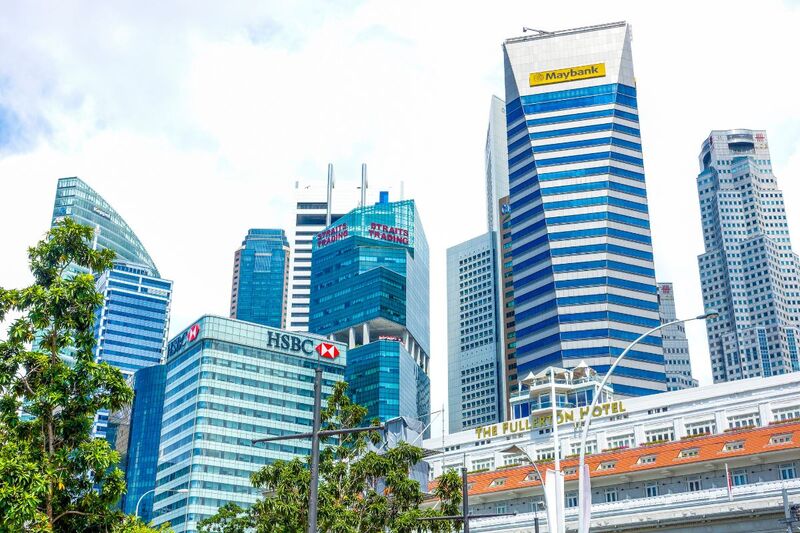Pedal to the Metal: How Singapore Is Becoming Asia’s Cycling Capital
In a nation known for its precision, innovation, and world-class infrastructure, Singapore is shifting into high gear—on two wheels. Once considered a recreational pastime, cycling has now taken centre stage in the country’s ambitious plan to build a car-lite, green, and connected future.
From Park Connector Networks to newly introduced cycling laws, the Lion City is quickly becoming Asia’s Cycling Capital. But beyond lifestyle changes, what does this mean for workers, gig economy players, and the companies hiring them?
Singapore’s Cycling Boom: Not Just a Trend
Cycling is no longer a niche hobby or weekend escape. It’s becoming a viable and preferred mode of transport—thanks to deliberate national planning and rising urban consciousness.
By 2030, Singapore aims to have 1,300 km of cycling paths, up from 530 km in 2024. These span across:
- Neighbourhoods and business parks
- Park Connector Networks (PCN)
- MRT stations and major industrial zones
The Land Transport Authority (LTA) has invested over S$1 billion into active mobility infrastructure, helping to integrate cycling into the daily routines of both leisure riders and professionals.
Why It Matters to Workers in Singapore
1. Cycling to Work Is on the Rise
A 2023 YouGov survey found that 14% of Singaporeans cycle to work at least once a week—double the figure from just three years earlier. Among 25–35-year-olds, the number rises to 21%.
Why the shift?
- Increased cost of vehicle ownership (COE, petrol, ERP)
- Desire for eco-friendly, active lifestyles
- Growing hybrid work models, allowing staggered commutes
Whether it’s tech professionals cycling from Tampines to Changi Business Park or creatives heading to shared studios in Telok Ayer, cycling is now mainstream.
2. Gig Workers Are Leading the Pack
Delivery riders, mobile beauty or repair service providers, and freelance photographers are increasingly using bicycles and power-assisted bikes (PABs) for their work. The reasons are clear:
- No need for COE or road tax
- Lower maintenance and fuel costs
- Faster last-mile delivery, especially in congested areas
For this workforce segment, cycling isn't just transport—it’s the engine of income.
Why It Matters to Employers
1. New Expectations from Job Seekers
Workers today are not just choosing jobs—they’re choosing lifestyles. Companies with bike-friendly policies or end-of-trip facilities (like secure bike parking, showers, or flexible start times) are seen as more progressive and wellness-oriented.
2. Aligning with ESG Goals
Encouraging employees to cycle fits neatly into Environmental, Social and Governance (ESG) strategies. Supporting greener commutes isn’t just responsible—it’s a powerful brand signal.
3. More Efficient Logistics
Businesses, especially in e-commerce and food, benefit from a more flexible, eco-efficient delivery workforce. Hiring gig workers who cycle or use e-bikes can reduce costs and carbon emissions while improving delivery times in the CBD or residential zones.
New 2025 Cycling Laws: Safer Roads, Smarter Rides
Singapore's cycling boom also comes with updated regulations to protect both cyclists and pedestrians.
As of March 2025, key changes include:
- Mandatory lights (front and rear) between 7pm–7am
- Speed limits reduced to 10km/h on shared paths near schools during peak hours
- Helmet enforcement for all e-bike and PAB users
- Fines up to S$1,000 for dangerous behaviours like cycling on expressways or riding against traffic flow
These measures are part of Singapore’s Active Mobility Act, reinforcing the message that cycling is here to stay—and must be practiced responsibly.
Park Connector Networks: The Backbone of Cycling Life
Singapore’s Park Connector Network (PCN) is the envy of the region. Spanning over 300 km, it links:
- Major neighbourhoods and green spaces
- Business and industrial hubs
- Educational institutions and lifestyle areas
This means a worker living in Pasir Ris can cycle safely to work at Changi Business Park, while someone in Queenstown can reach Mapletree Business City entirely on protected paths.
And with the North-South Corridor under development—including a dedicated cycling trunk route from Woodlands to the CBD—the future looks even more connected.
Healthier Employees, Happier Workplaces
According to the Institute for Health Metrics, regular cycling:
- Lowers stress by 23%
- Increases daytime productivity by 19%
- Can reduce employer healthcare-related costs by over S$2,000 per employee annually
Cycling-friendly workplaces often report lower absenteeism, stronger morale, and improved team dynamics—all without the hefty cost of a corporate wellness programme.
Final Thoughts: The Two-Wheel Workforce Has Arrived
From logistics riders to UX designers, Singaporeans are embracing a new way of getting to work—and it’s on two wheels.
As Singapore pedals into the future, employers and job seekers alike must rethink how mobility, wellbeing, and work intersect. Whether you're riding to a gig, a boardroom, or your own startup workspace, one thing is clear:
Singapore is not just riding the cycling wave—it’s leading it.
FAQ: Cycling in Singapore
Q1: Is cycling to work allowed on all roads?
Cyclists can ride on roads, cycling paths, and shared footpaths, but cycling on expressways or slip roads is prohibited.
Q2: Are helmets required for cyclists in Singapore?
Helmets are mandatory for e-bike and PAB users, and recommended for all cyclists, especially on roads.
Q3: Can I bring my bike into the office or MRT?
Many workplaces offer bike parking. Foldable bikes are allowed on MRTs during off-peak hours.
Q4: Is cycling safe in Singapore?
Yes, thanks to extensive PCNs, low traffic roads, and stricter enforcement of active mobility rules.
Q5: Are there government grants or incentives for cycling to work?
While there are no direct cash grants, some companies offer transport reimbursements or wellness subsidies that can apply to cycling expenses.
Ride into a Better Career with Reeracoen
Looking for flexible jobs or sustainable employers?
✅ Explore jobs with bike-friendly companies
✅ Hire talent ready to go the distance
Let Reeracoen help you stay ahead in the fast lane—even if you're riding a bike.
Disclaimer:
The information provided in our blog articles is intended for general informational purposes only. It is not a substitute for professional advice and should not be relied upon as such.
While we strive to provide accurate and up-to-date information, the ever-evolving nature of certain topics may result in content becoming outdated or inaccurate over time. Therefore, we recommend consulting with qualified professionals or experts in the respective fields for specific advice or guidance. Any actions taken based on the information contained in our blog articles are solely at the reader's discretion and risk. We do not assume any responsibility or liability for any loss, damage, or adverse consequences incurred as a result of such actions.
We may occasionally provide links to external websites or resources for further information or reference. These links are provided for convenience and do not imply endorsement or responsibility for the content or accuracy of these external sources. Our blog articles may also include personal opinions, views, or interpretations of the authors, which do not necessarily reflect the views of our organisation as a whole. We encourage readers to verify the accuracy and relevance of information presented in our blog articles and to seek professional advice when needed. Your use of this website and its content constitutes acceptance of this disclaimer.
Reference Links:



